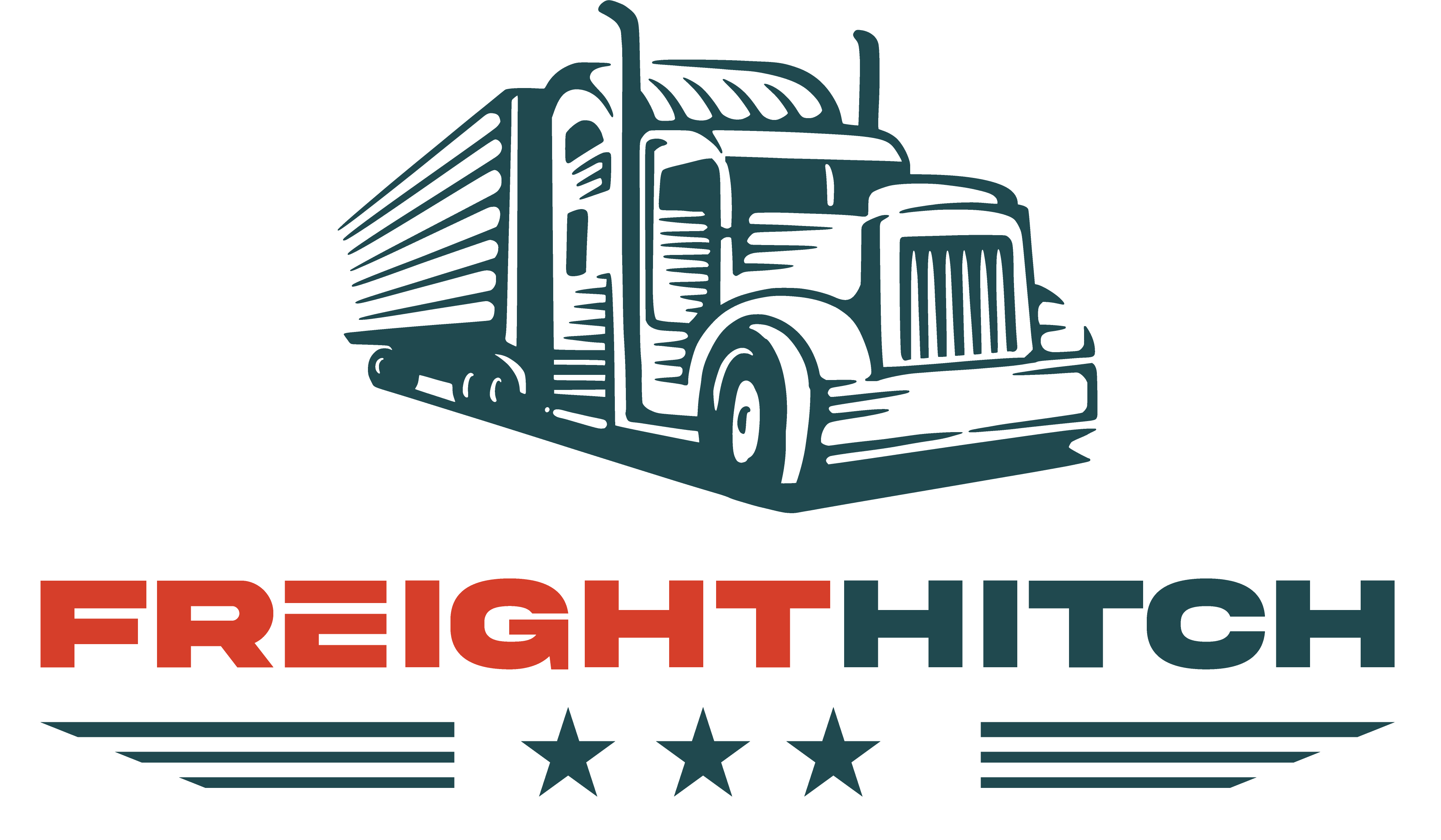When it comes to shipping goods, finding the right carrier can make all the difference in ensuring that your operations run smoothly and cost-effectively. Top LTL carriers play a critical role for businesses shipping smaller loads, allowing multiple companies to share truck space while keeping costs lower. This shipping method is ideal for businesses that don’t need a full truck but want reliable delivery at a reasonable price.
In this guide, we’ll explore the best practices in LTL shipping, offer a checklist for choosing the right LTL carrier, and show you why working with the right partner, like Freight Hitch, can make your supply chain more efficient. We’ll also provide examples of how these strategies work in real-world scenarios.

Introduction to LTL Carriers
LTL carriers transport goods from multiple businesses on the same truck. The cost is split among the shippers, making it more affordable for companies that don’t have enough freight to fill an entire truck. The beauty of LTL shipping lies in its flexibility—allowing businesses to move smaller shipments without paying for unused truck space.
When choosing an LTL carrier, businesses often prioritize factors such as reliability, coverage area, pricing, and technology integration. For companies that are frequently shipping, such as e-commerce stores or manufacturers, having the right LTL partner ensures their goods arrive safely and on time.
Checklist for Choosing the Top LTL Carriers
Selecting the right carrier is a critical decision. To help ensure you choose wisely, here’s a checklist of things to look for and common mistakes to avoid when selecting an LTL carrier:
1. Check if They Have an Asset-Based Model
When working with an asset-based LTL carrier, you are dealing directly with the company that owns the trucks and equipment. This gives you better control over your shipment and allows for more reliable delivery times. Unlike third-party logistics brokers, asset-based carriers like Freight Hitch can offer superior service and accountability because they manage their own fleet.
- Example: Imagine a local home improvement store that regularly ships seasonal outdoor furniture. With an asset-based carrier, they can ensure that the same fleet is used consistently, reducing the risk of delivery delays when demand spikes in the summer.
2. Look for a Carrier with a Strong Regional and National Network
If your business needs to ship to multiple locations, you’ll want a carrier with a wide network of service areas. This ensures your goods can reach their destination without multiple handoffs or transfers that increase the chances of damage or delays.
- Example: A craft supply shop looking to distribute holiday decorations to stores across the country before Christmas would benefit from a carrier with national coverage. If they don’t secure a reliable LTL carrier early, they could face delays that result in products arriving after the peak holiday buying season, losing critical sales opportunities.
3. Ensure They Offer Real-Time Tracking and Visibility
Technology is a crucial part of modern logistics. A good LTL carrier should provide real-time tracking, giving you and your customers visibility into where the shipment is and when it will arrive. This transparency builds trust and allows for better planning.
- Example: A small electronics company can use real-time tracking to keep tabs on their shipment of components for Black Friday sales. If their LTL carrier doesn’t provide accurate tracking, they could face unexpected delays that disrupt their promotional campaigns, resulting in stock shortages during the busiest sales period.
4. Check Their Damage and Loss Prevention Record
LTL shipments are often loaded and unloaded multiple times during transit. To avoid issues like damaged goods, it’s essential to work with carriers known for their careful handling processes and low damage rates.
- Example: A high-end furniture retailer should prioritize a carrier with an excellent damage prevention record to protect their fragile products. If their shipment of luxury items gets damaged due to poor handling, it could lead to expensive returns, loss of customer trust, and missed delivery deadlines for their clients.
5. Look for Flexible Service Options
Every business has unique needs, and your LTL carrier should offer a range of services, such as expedited shipping or guaranteed delivery options. These services provide flexibility when deadlines are tight or when a customer requires extra attention.
- Example: A boutique wine distributor may need expedited services to ensure their products arrive just in time for a holiday promotion. Without a flexible LTL partner, they risk delays that could cost them valuable sales during peak holiday seasons.
6. Evaluate Their Customer Service and Communication
Efficient customer service is essential, especially if a shipment gets delayed or needs adjustments. Choose an LTL carrier with a reputation for prompt, helpful communication.
- Example: A medical supply company shipping essential equipment to hospitals will need a carrier that can provide quick responses in case of urgent changes. If their shipment of life-saving equipment is delayed and the carrier isn’t responsive, it could lead to critical shortages and impact patient care.

Best Practices in LTL Trucking for Top LTL Carriers and shippers
Beyond choosing the right LTL carrier, there are certain best practices that can further optimize your shipping process and help you get the most out of LTL services.
1. Use Proper Packaging
Since LTL shipments are often handled multiple times, it’s important to package your goods properly to prevent damage. Ensure that fragile items are cushioned, and use palletization for bulkier shipments to make loading and unloading easier.
2. Plan Ahead and Schedule Early
LTL shipping costs can fluctuate based on demand, especially during peak seasons like the holidays. To avoid price hikes and ensure availability, plan your shipments in advance and schedule them early.
- Example: A party supply company planning for a busy event season ran into shipping delays and price hikes because they scheduled their shipments too late. If they had planned earlier, they could have secured better shipping rates and avoided the last-minute rush.
3. Consolidate Shipments When Possible
Whenever possible, consolidate your shipments to reduce the number of pickups and deliveries. This helps lower your overall costs and reduces the risk of damage, as fewer handoffs occur.
- Example: A regional toy manufacturer consolidates several smaller shipments of toys heading to various retail locations into a single LTL shipment. By doing this, they save on transportation costs and minimize the risk of damage from excessive handling during transit.
4. Stay Informed on Regulations
Ensure that your shipping practices comply with local and national regulations, particularly if you’re shipping sensitive or restricted goods, such as hazardous materials or alcohol. Understanding these regulations will help avoid fines and shipping delays. For more on LTL best practices, check out the resources from the American Trucking Associations on their official site.
Why Choose Freight Hitch for LTL Shipping?
Working with a top-tier, asset-based LTL carrier like Freight Hitch offers many advantages, including better control over your shipments, reliable delivery times, and cost-effective solutions. With our extensive network and commitment to using cutting-edge logistics technology, we ensure your goods are delivered on time, every time.
In addition to LTL services, we also offer specialized freight solutions for temperature-sensitive goods and more.
Conclusion
Choosing the right LTL carrier isn’t just about finding a company that can move your goods; it’s about partnering with a reliable, customer-focused carrier that can help your business grow. By following the checklist above, you can avoid common mistakes and ensure your freight arrives on time and in perfect condition. Whether you’re shipping regionally or nationwide, Freight Hitch is here to help with flexible, dependable LTL solutions that meet your unique needs.




